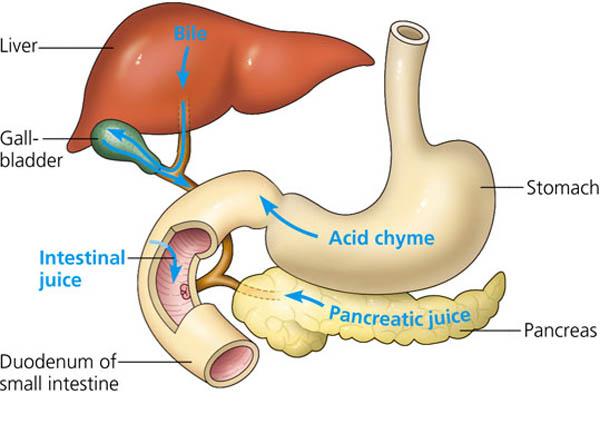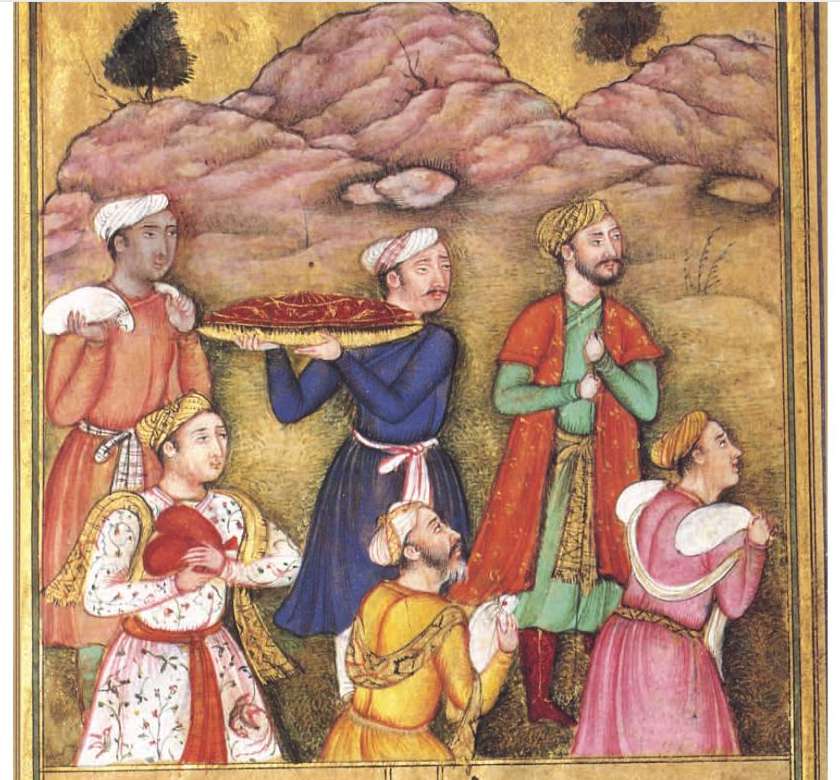FWP:
SETS == EXCLAMATION;
GROTESQUERIE; IDIOMS; INEXPRESSIBILITY; JO; KA/KE/KI; MIDPOINTS
FOOD: {6,4}
INDEPENDENCE: {9,1}
SPEAKING: {14,4}
ABOUT jo kih : On the versatility of jo kih , see the two definitions above; in the second one, it replaces jab kih (see {53,8}). For discussion of jo forms in general, see {12,2}.
The first line is inshaa))iyah, an exclamation about the impossibility of expressing-- what exactly? (For more on kyaa kahuu;N , see {15,11}.) Thanks to the multivalence of the kii , there are several possibilities:
=relief from the sickness of grief, for the speaker (he no longer feels
sick with grief)
=relief provided by the sickness of grief, for the speaker (thanks to the sickness
of grief, he's no longer indebted to chyme)
=relief for the sickness of grief itself (the sickness of grief feels itself
helped and soothed)
The second line offers what seems to be information about the lover's digestive process. Because of the clever midpoint positioning of ;xuun-e dil , there are at least two ways of reading it.
One possibility (2a): Since what the speaker ate 'was' (literally or metaphorically or both) heart's blood, there was no need for digestive fluids like chyme. As Nazm points out, an idiomatic expression (evoked, rather than precisely stated) underlies this idea: 'to eat the blood of the liver' means to suffer grief (see the definition above; on the significance of the liver in ghazal physiology see {30,2}). The speaker lived on nothing but grief, and so found 'relief' from all worries about digesting his food.
Another possibility (2b): whatever the speaker ate 'turned into' heart's blood-- and without the intervening stage of becoming 'chyme'. His food turned directly into heart's blood, perhaps because he was losing blood so fast, through weeping tears of blood and so on, that every bit of energy had to be diverted at once to the front lines. His whole body had converted itself into an obsessively focused grief-expressing organism. He thus obtained 'relief' from the cares of normal life, including normal digestion.
But there's another sense in which the speaker obtained 'relief', and it's a particularly Ghalibian one. Ghalib develops throughout the divan a concept of minnat , a dependent indebtedness that is always seen as humiliating. For a detailed discussion of this concept, with supporting evidence, see {26,1}. In Ghalib's poetic world, one should always be oneself and use only one's own unique, personal resources, even if they are deficient. Indebtedness to anything whatsoever-- even apparently to digestive fluid-- is a source of shame that one should find real 'relief' in avoiding.
And of course, the first line could be entirely sarcastic,
depending on the tone in which it's read. 'What a relief-- now that I'm too
sick to eat normally any more, I have no further worries about digestion!' But then, the
un-ironic 'straight' reading always reappears. Because the lover is always
headed straight for death, aimed like an arrow, and never regrets this fulfillment
of his true destiny: for him death is the only real 'relief'.


Nazm:
Whatever I ate, it was without chyme, and it became the blood of the liver, that is, our grief. I ate only the blood of the liver, and 'to eat the blood of the liver' is said on occasions of enduring grief and suffering. (38)
== Nazm page 38